Goin’ Down the Road (1970)
“Oh, Joey — there’s goin’ to be so much there, we won’t know where to begin!”
|
Synopsis: |
|
Genres, Themes, Actors, and Directors:
Response to Peary’s Review: … “and totally ignorant of the fact that their jobs exploit them” (actually, only Bradley is ignorant of this). This quickly changes, however, given that “the city is no paradise, [and] they begin to struggle for work, food, and recognition… As alienated labor, they too begin to realize that there is something inherently wrong with the system.” (Again, I would argue that McGrath sees this loud and clear, while for Bradley, it’s an elusive truth.) Peary points out that the “film contains many exceptional sequences,” including Bradley telling “everyone at his wedding reception that he has married for love and not because his wife is pregnant”: … and “a group of unemployed hangers-on gathered around a Conway Twitty look-alike in a park, while he sings Merle Haggard’s classic ‘Sing Me Back Home.'” Peary notes that McGrath and Bradley — who were “cast because of their ability to improvise” — “create a very convincing camaraderie in roles that seem influenced by English working-class films,” with “the scene in which they drive around on a double date (each closer to the other than to the woman) remind[ing] one of similar scenes in The Loneliness of the Long Distance Runner.” He ends his review by referring to this as a “human, sincere, powerful, and political film” which “has much to say,” and noting that “director Donald Shebib (who was literally starving during production) and writer William Fruet offer us unique insight into the everyday struggle for survival.” While I’m not as much of a fan of this film as Peary is, it’s a well-made low-budget tale which packs a punch in its message that survival is tough — even cruel — if you’re not already up on top. Notable Performances, Qualities, and Moments: Must See? Links: |
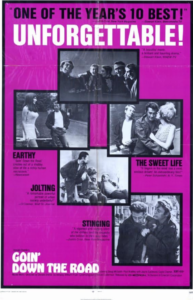
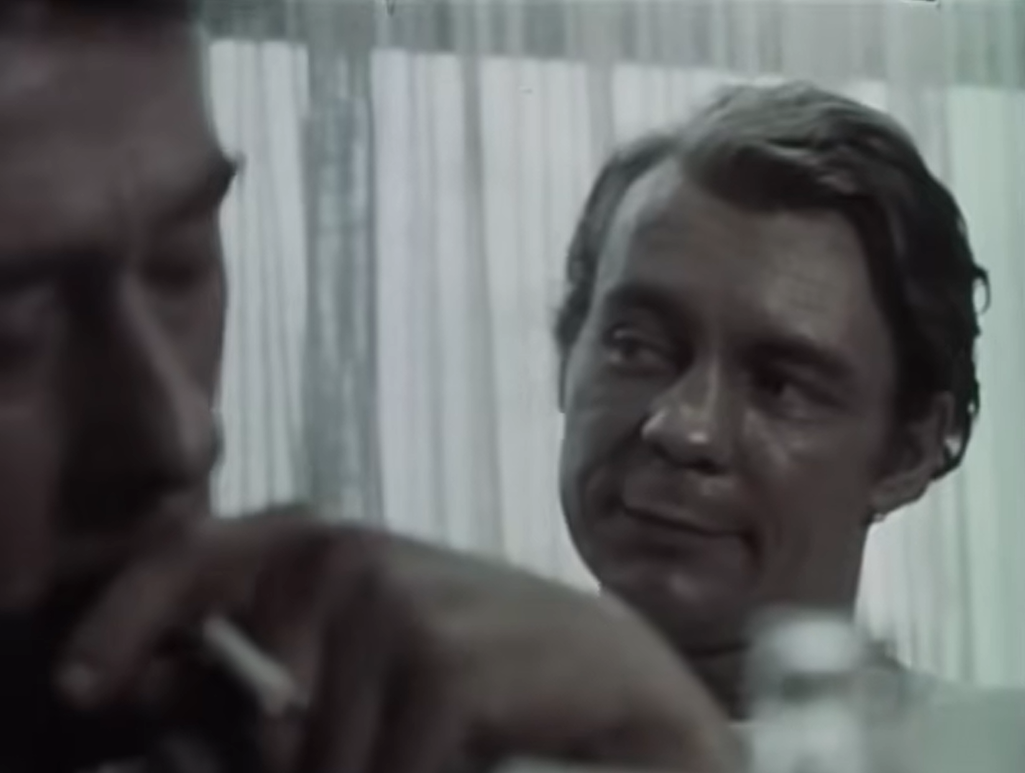
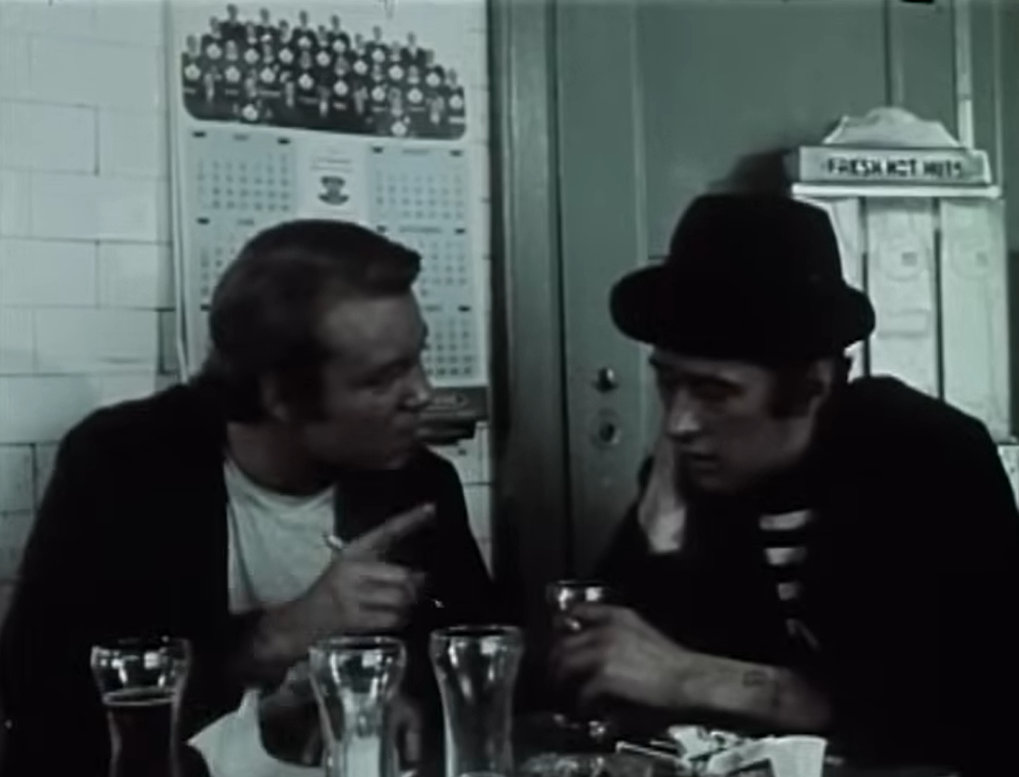
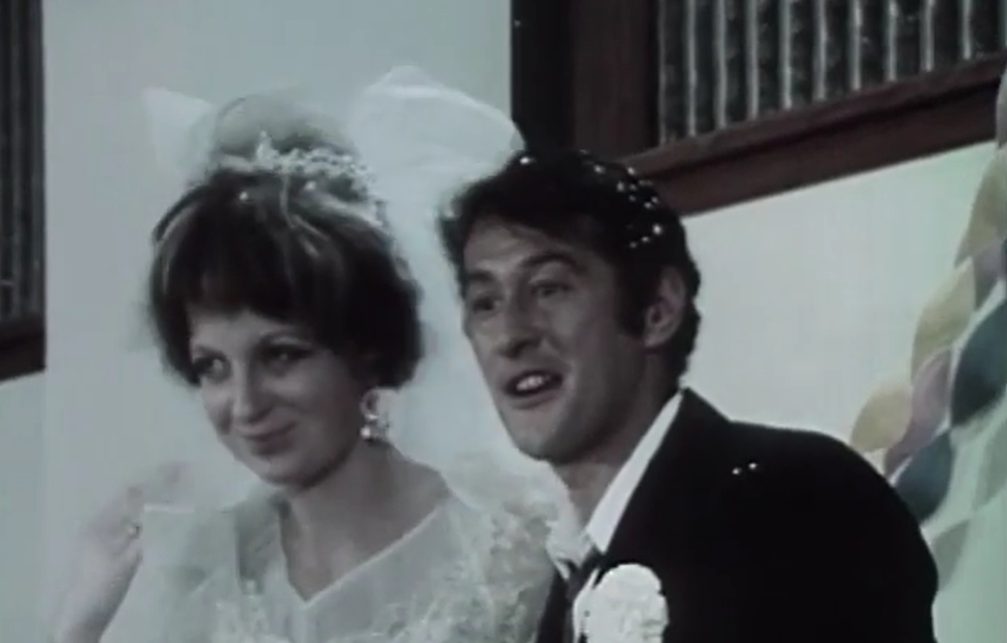
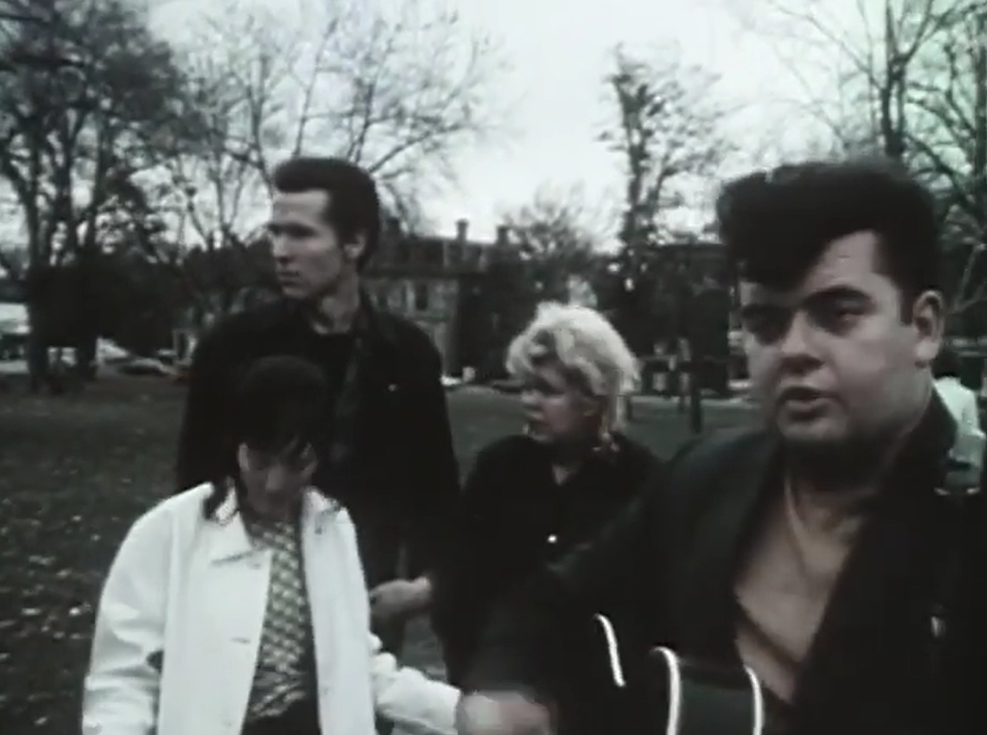
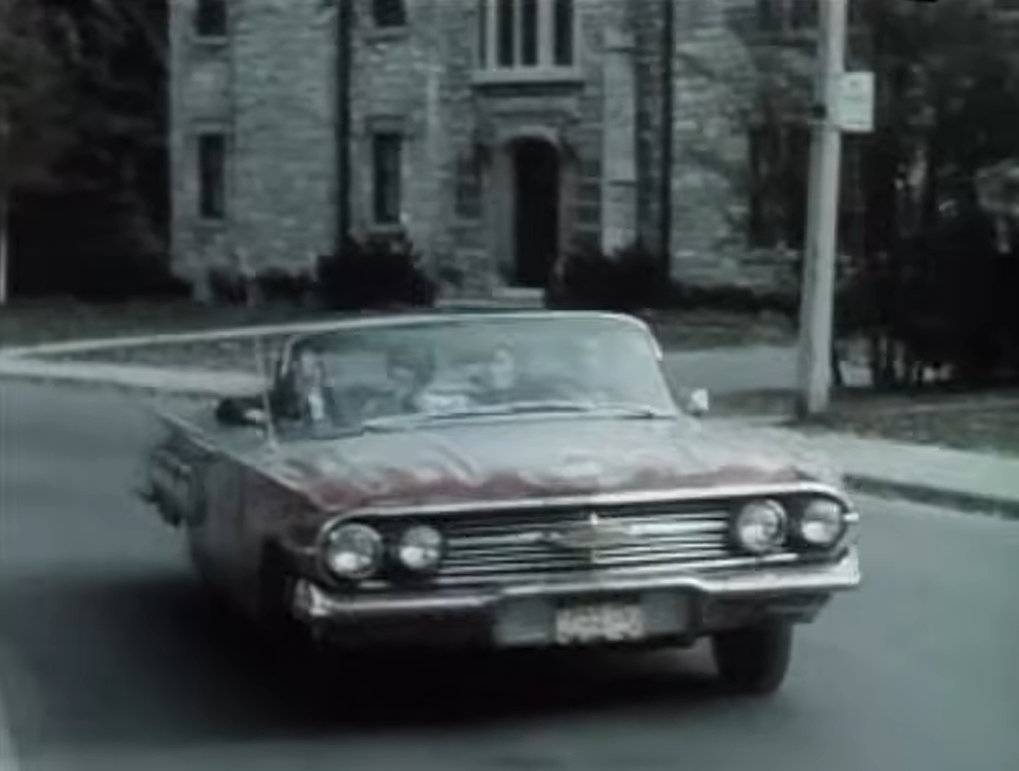
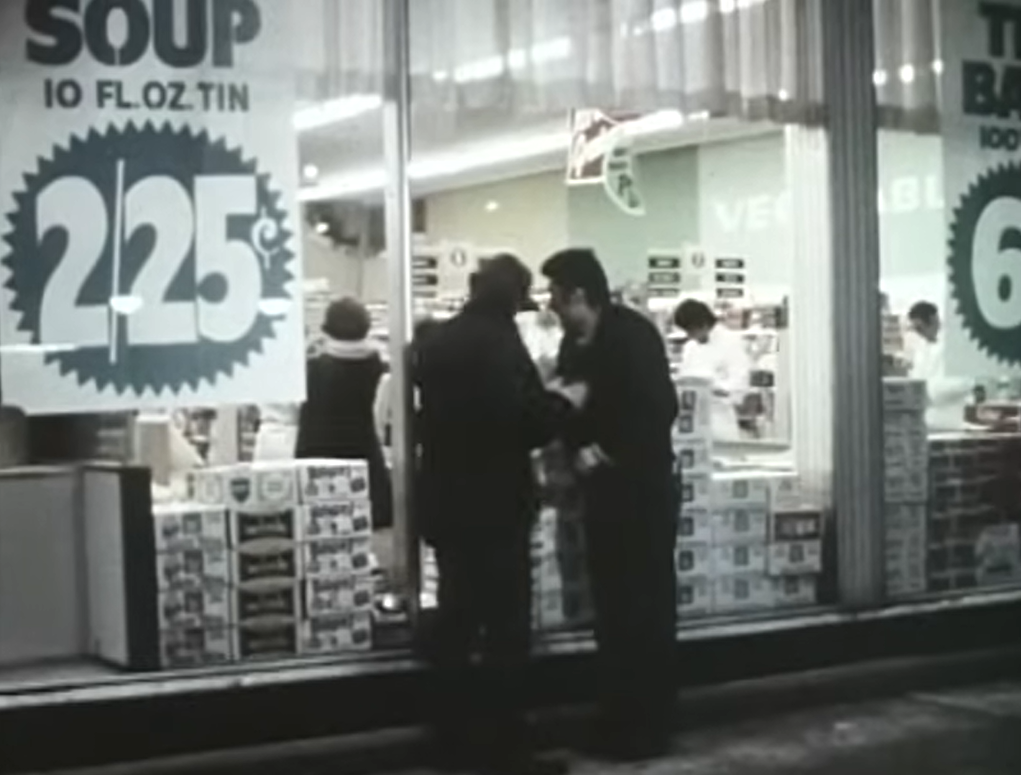
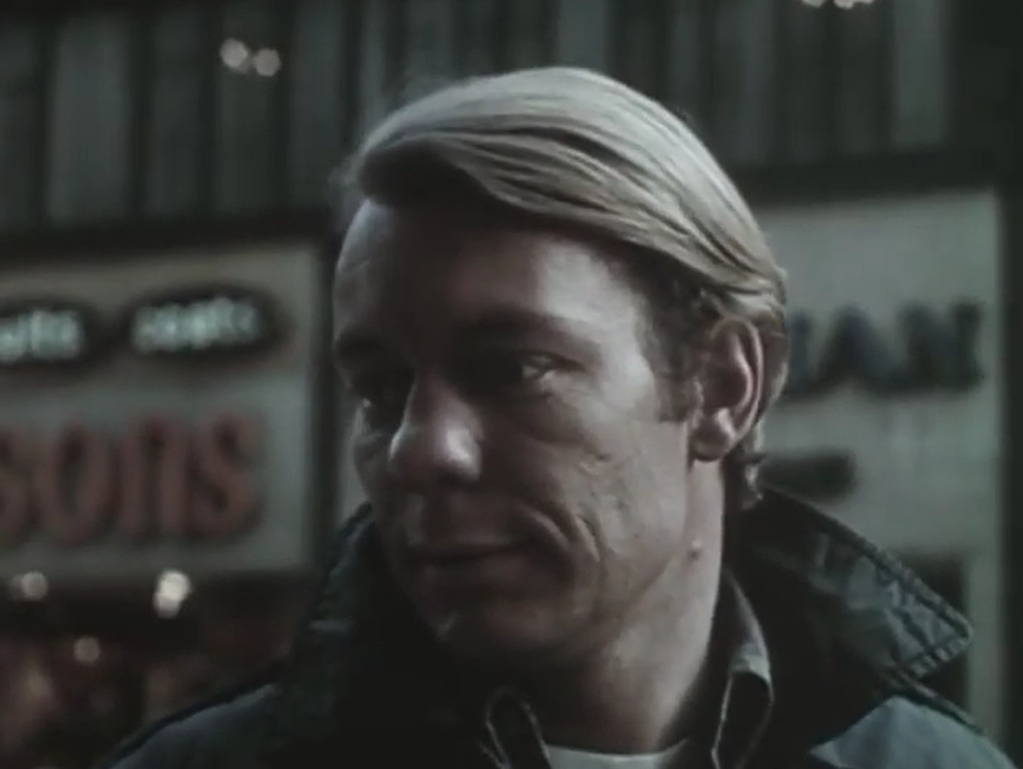
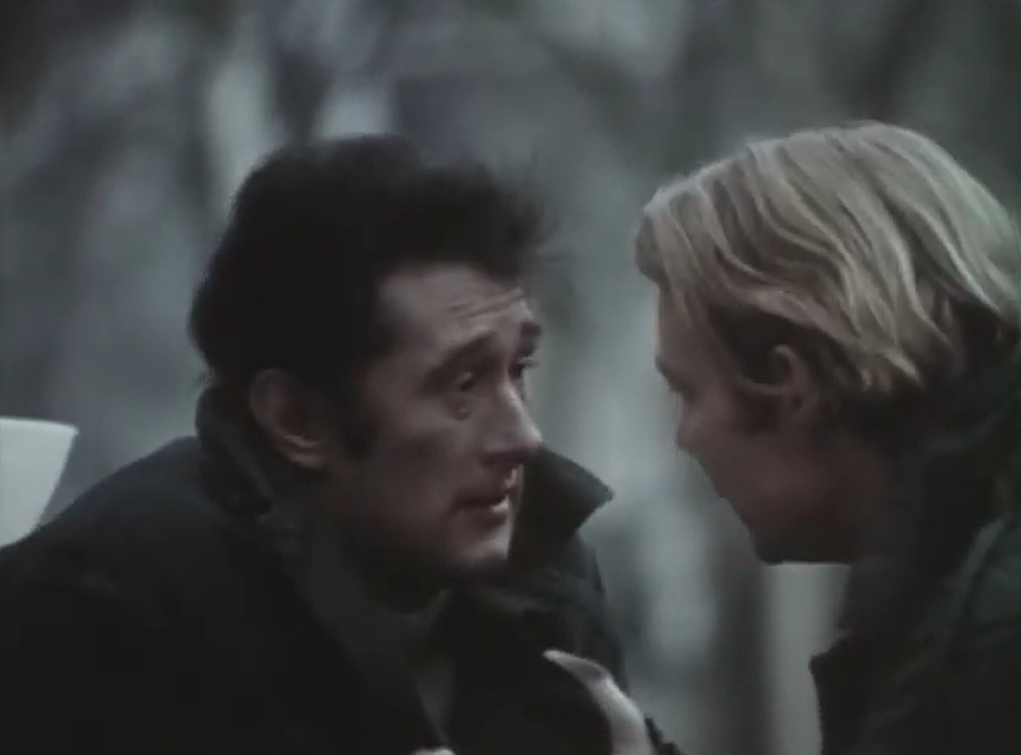
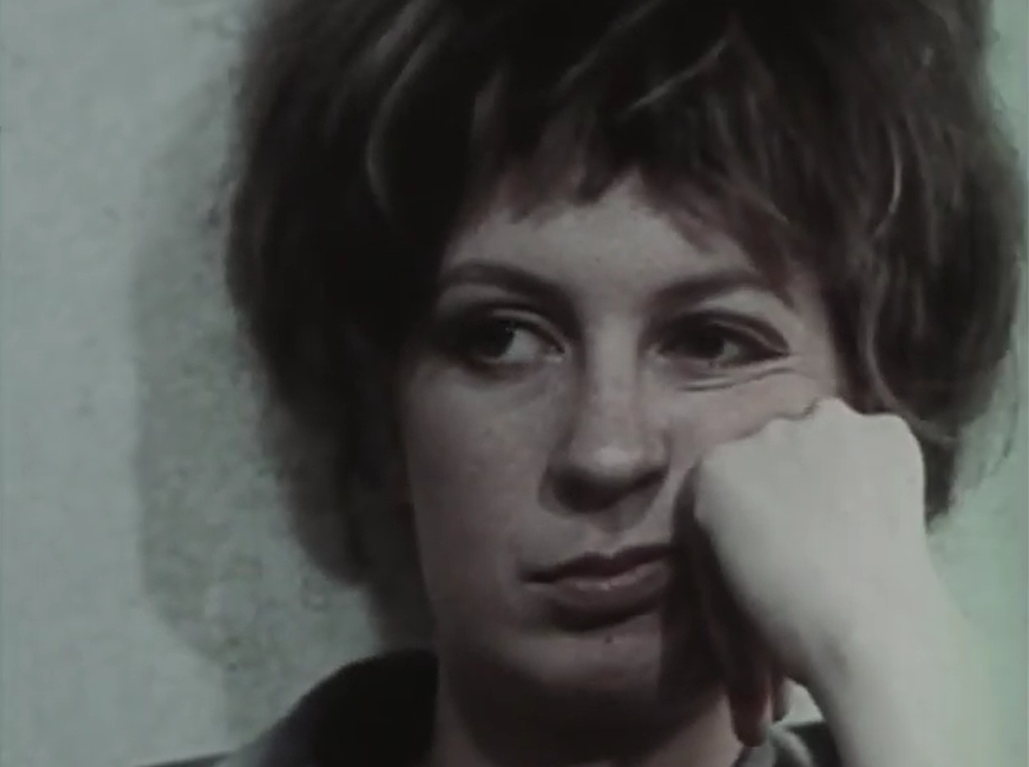
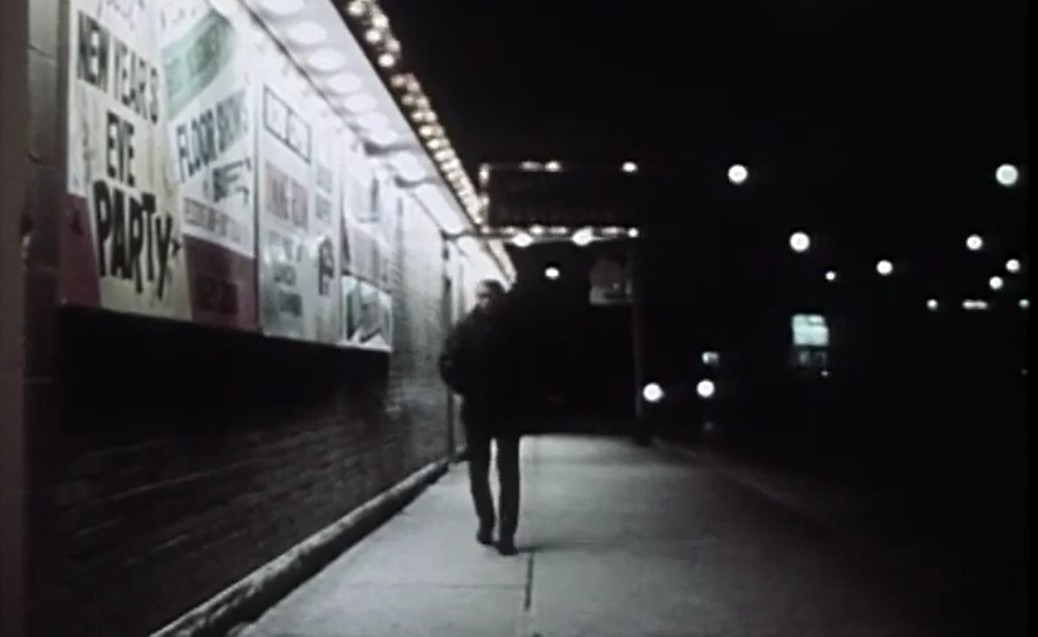
2 thoughts on “Goin’ Down the Road (1970)”
First viewing. Not must-see.
Forgotten independent film of little interest. It doesn’t stand out for any reason; there’s no aspect of it that’s unique and the characters aren’t interesting. (Early on, the dominant regressive male mentality is tiresome.) On the ‘plus’ side, it feels authentic-enough (for what it is) – but, as the film nears its finish, a moral compass is given the heave-ho and all is pointlessly inconclusive.
Another one I’d not heard of before. Leonard Maltin …
⭐️⭐️⭐️1/2 out of ⭐️⭐️⭐️⭐️
Award-winning film made for less than $100,000 puts most Hollywood blockbusters to shame; modest tale of two unlucky Nova Scotians and their near-tragic finish packs a memorable punch. McGrath and Bradley are remarkably good.